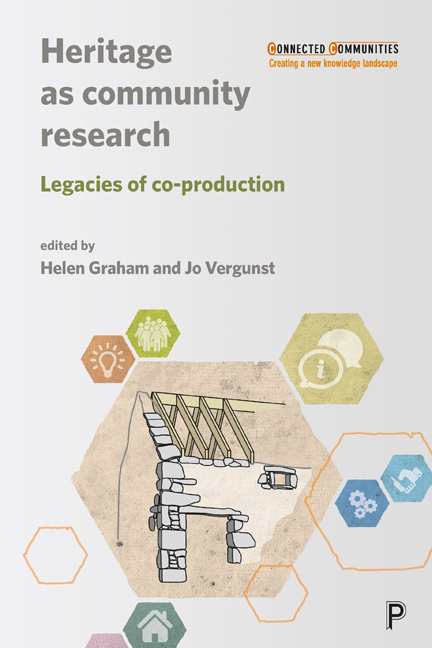Preface
Published online by Cambridge University Press: 27 April 2022
Summary
Our aim in editing this book has been to bring out the ways in which heritage is being explored and created through community research. Both ‘community’ and ‘research’ need as much unpacking as ‘heritage’, of course, and the book's Introduction provides critical perspectives on these terms and others that are relevant to us. However, the point is that these shared and participatory inquiries can tell wholly different stories from those commonly associated with history, archaeology and other disciplines associated with the past, and also anthropology and social sciences concerned with the present. To anticipate our conclusion, it is the way in which time itself is open to question that seems to make the difference. Different futures might result.
The impetus for our book has come from the UK Arts and Humanities Research Council's (AHRC’s) ‘Research for Community Heritage’ initiative, part of their Connected Communities programme. The swapping around of words for our title is a small but we hope significant move intended to raise questions for those interested in participatory and co-produced research more generally, as well as those already in the ‘heritage’ field. Specifically, we were recipients of a grant from the AHRC to explore the legacies and outcomes of heritage research within Connected Communities, which enabled us and our co-investigators (Elizabeth Curtis, Neil Curtis, Oliver Davis, Robert Johnston and Colin Shepherd) to host meetings and workshops, and to fund further explorations of research legacy. This book is an outcome of that process. We gratefully acknowledge the funding, and we also acknowledge and thank the many researchers, participants, communities and organisations that have been involved.
- Type
- Chapter
- Information
- Heritage as Community ResearchLegacies of Co-production, pp. xi - xiiPublisher: Bristol University PressPrint publication year: 2019

